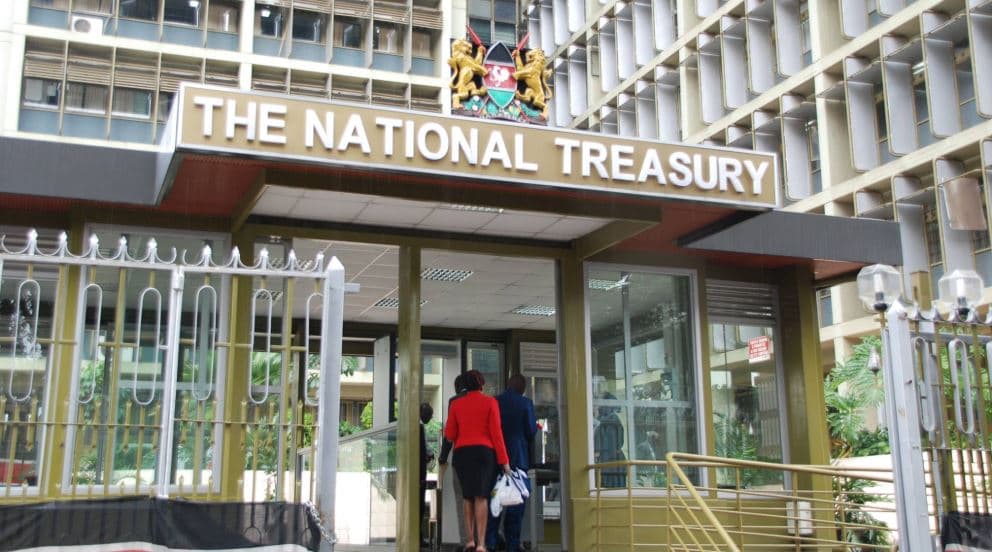We're loading the full news article for you. This includes the article content, images, author information, and related articles.
The National Treasury has opened public consultation on a landmark Ksh200 billion sovereign wealth fund aimed at stabilising Kenya's economy and securing national savings. The fund's success, however, will hinge on robust governance to avert potential risks.

The National Treasury has formally invited the Kenyan public to submit views on the draft Kenya Sovereign Wealth Fund Bill, 2025, which outlines the creation of a Ksh200 billion state-owned investment fund. In a notice dated Monday, October 27, 2025, Treasury Cabinet Secretary John Mbadi announced that the public, civil society, and other stakeholders have until Friday, November 7, 2025, to provide their feedback on the proposed legislation.
The initiative, championed by President William Ruto's administration, aims to create a professionally managed fund to safeguard revenues from Kenya's natural resources, such as oil, gas, and minerals. According to the draft Bill, the fund is designed to achieve three core objectives: to cushion the national economy from revenue volatility and external shocks; to finance strategic infrastructure projects without accumulating further debt; and to build a savings base for future generations once these non-renewable resources are depleted.
The proposed Kenya Sovereign Wealth Fund (KSWF) will be vested in the National Treasury, acting in trust for the citizens of Kenya, with the Central Bank of Kenya (CBK) serving as its custodian. All revenues earmarked for the fund will first be deposited into a holding account at the CBK.
The Bill outlines a three-part structure for the fund:
Primary funding sources will include profits from petroleum operations, mining royalties, and proceeds from the divestment of government interests in the energy and minerals sector. This aligns with the recently enacted Privatization Act, 2025, which provides a new framework for the sale of state-owned enterprises. Under the proposed law, the Treasury Cabinet Secretary will have the discretion to determine annual allocations to each of the three components, a shift from a previous 2019 draft that had fixed percentages.
Proponents argue that a well-managed sovereign wealth fund could be transformative for Kenya, reducing the country's reliance on foreign debt for development projects and helping to stabilise the shilling. By investing primarily in foreign currency-denominated instruments, such as high-grade international bonds, the fund could also serve as a hedge against currency fluctuations. The draft Bill explicitly prohibits investment in speculative derivatives, unlisted real estate, and local securities to mitigate risk. Furthermore, the fund cannot be used as collateral for government borrowing, a measure intended to safeguard its integrity.
Kenya joins other African nations like Nigeria and Ghana in establishing a fund to manage natural resource wealth. Successful global examples, such as Norway's Government Pension Fund Global, now worth over $1.7 trillion, provide a model for long-term fiscal discipline.
Despite the potential benefits, financial experts have raised concerns about the fund's governance structure and the risk of mismanagement, which has plagued other state-run initiatives. Critics point to the performance of other public funds as a cautionary tale, emphasizing that the KSWF's success will depend entirely on transparency, accountability, and insulation from political interference. The draft Bill proposes a board to oversee the fund, comprising a chairperson appointed by the President, the Treasury Principal Secretary, the CBK Governor, and independent members.
The call for public participation is a requirement under Articles 201(a) and 232(1)(d) of the Constitution, which mandate openness in public financial matters. The feedback gathered will be used to finalise the Bill before it is presented to Parliament for debate and enactment.
The draft Bill is available on the National Treasury's website, and submissions can be made via email or delivered as hard copies to the Treasury building in Nairobi.
Keep the conversation in one place—threads here stay linked to the story and in the forums.
Sign in to start a discussion
Start a conversation about this story and keep it linked here.
Other hot threads
E-sports and Gaming Community in Kenya
Active 9 months ago
The Role of Technology in Modern Agriculture (AgriTech)
Active 9 months ago
Popular Recreational Activities Across Counties
Active 9 months ago
Investing in Youth Sports Development Programs
Active 9 months ago
Key figures and persons of interest featured in this article